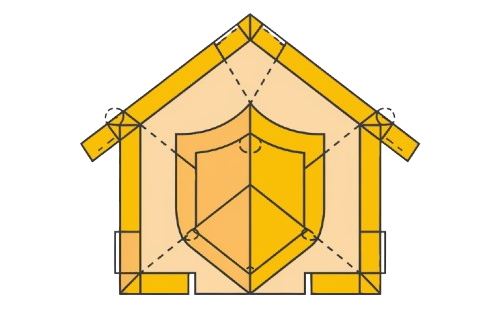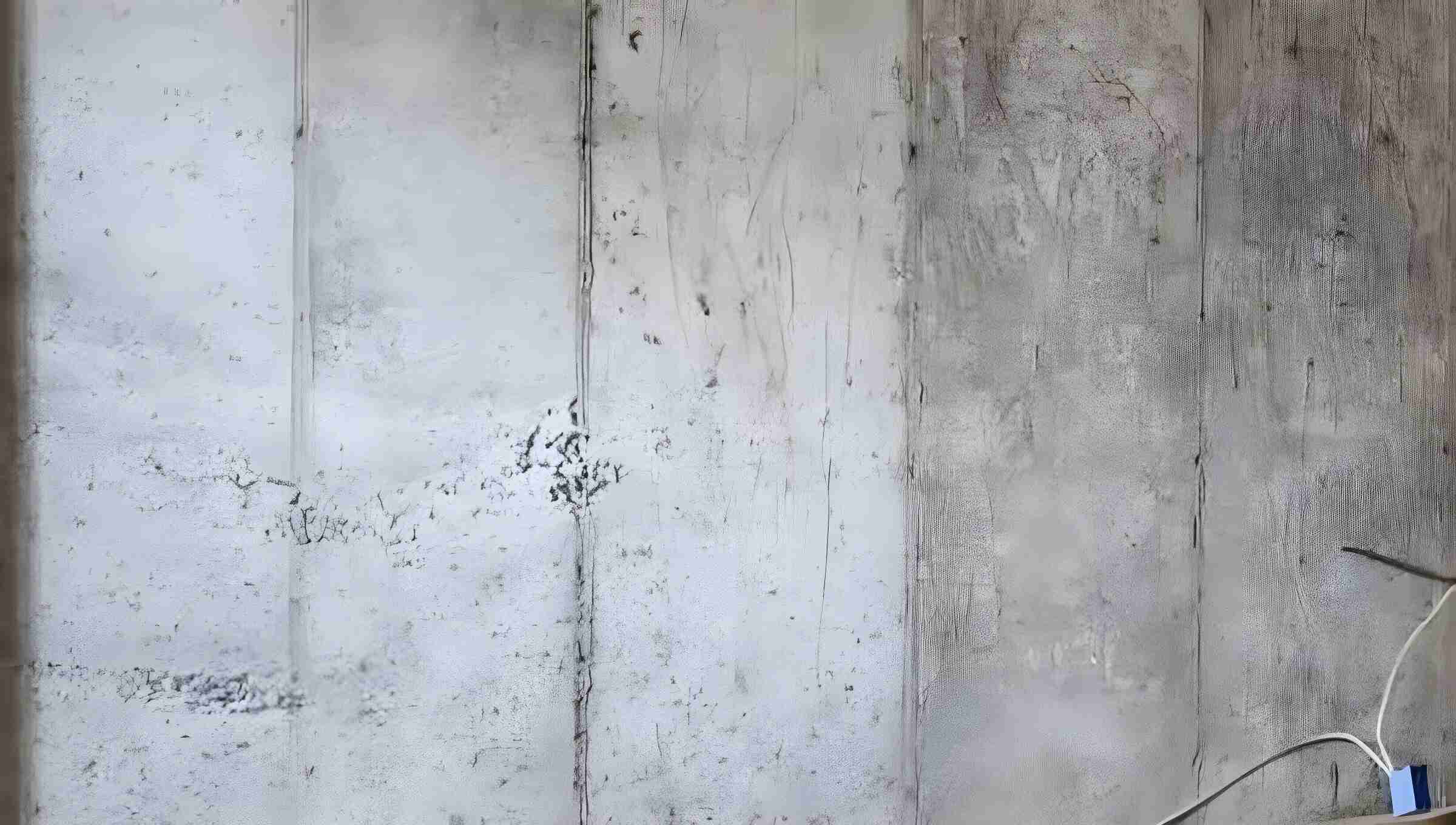While some may wonder about the need for insulating the basement walls, understanding the benefits of this upgrade can drastically improve the comfort and efficiency of your home. In many houses, the basement serves multiple purposes: from storage space to living space when finished and insulated properly.
If you’ve ever noticed that the basement area of your house feels unusually cold, even when the rest of the home is warm, it’s likely due to insufficient insulation. Without a barrier of protection, your basement can leech heat, making your house less energy-efficient and raising heating costs. By choosing to insulate your basement walls, you not only stop the cold but also transform your basement into a more comfortable, livable area. Proper household insulation ensures that no area is left uninsulated, acting as essential structural support and adding variety to how the space is used.
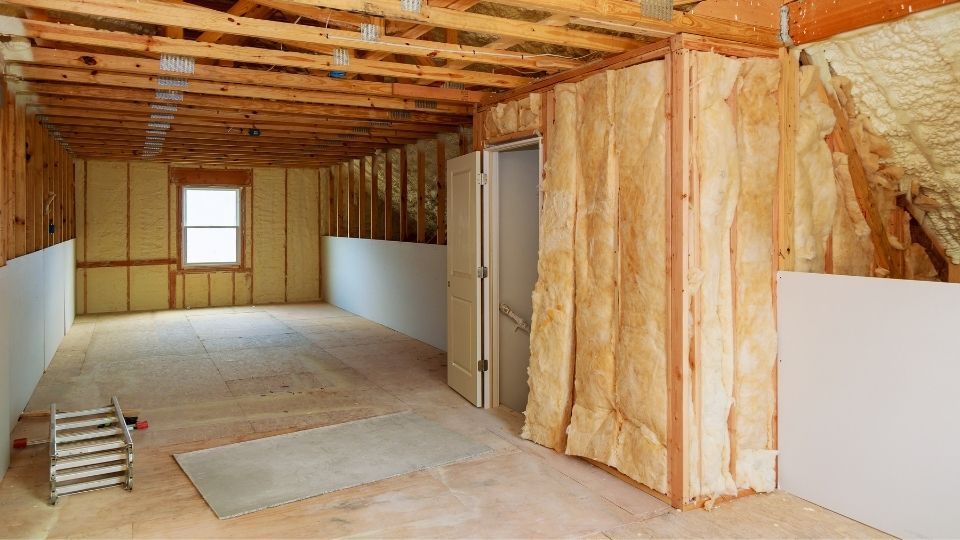
This section of the home is often overlooked but carries significant potential for improving overall home efficiency and usability. Basement insulation not only wards off the chill but also provides a smoother operation of your HVAC systems, reducing maintenance overhead and energy consumption.
Should Basement Walls Be Insulated?
The Importance of Insulating Basement Walls
Basements are a crucial part of your home’s thermal envelope, a barrier that separates the comfortable inside world from the harsh conditions outside. Proper insulation of the basement walls is not only important but necessary for several reasons. First, it helps maintain a consistent temperature within the home, mitigating the temperature and moisture differences that can occur between the ground outside and the basement below. This insulation acts as a barrier against moisture transition from the dirt surrounding the foundation, which can lead to structural issues and damp conditions.
Moreover, ensuring your basement is properly insulated is technically a code requirement in many areas. Not meeting these building codes can lead to problems such as cold floors and drafts, which make living spaces uncomfortable and increase energy consumption. Effective basement wall insulation helps conserve energy, saving money on heating costs and reducing the strain on your HVAC system, making your home more comfortable year-round. Additionally, for homeowners, making the basement an insulated priority not only enhances energy conservation but also increases the usability of this often underutilized space.
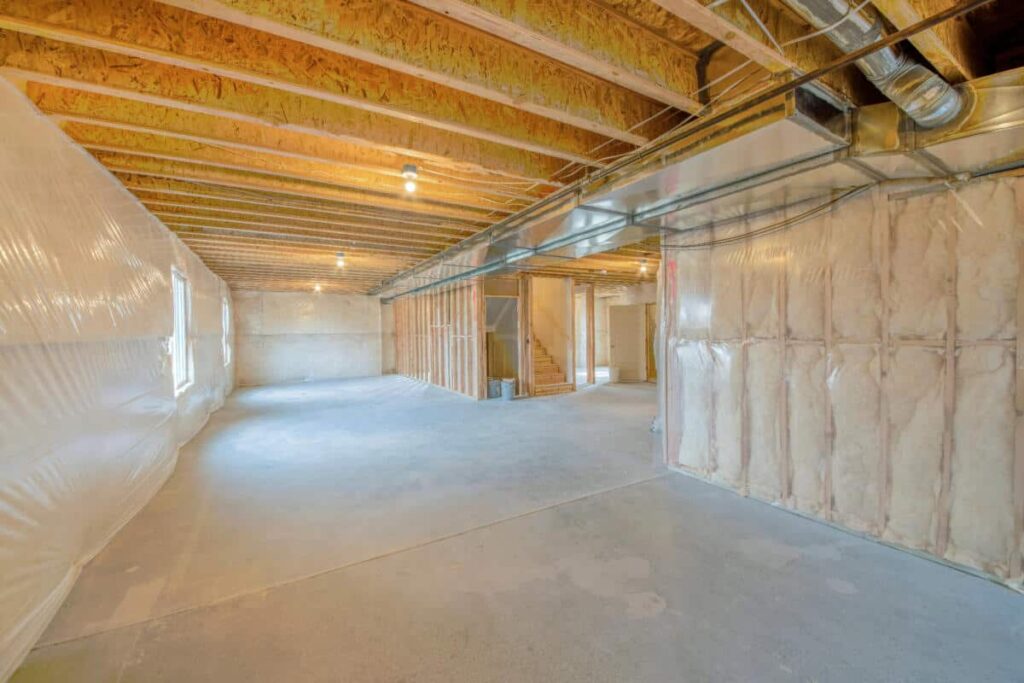
Enhancing Energy Efficiency in Your Home
When it comes to making your home more energy-efficient, insulating the basement can often be overlooked as a solution. Many homeowners might not consider how much their basement’s temperature impacts overall energy usage. It’s believed that insulating just the ceiling or floor is enough, but truly, applying insulation directly to the basement walls is one of the most effective methods. This space, particularly if it’s partially or completely underground, tends to be significantly cooler. By insulating these walls, you protect your home from the chill that seeps in from the foundation, making your heating systems work more efficiently and reducing the need to crank up the heat, which in turn cuts down on energy usage.
Saving Money on Home Maintenance and Energy Bills
Basement insulation not only helps in maintaining a comfortable living environment but also saves money. With basement walls covered in high-quality insulation, your HVAC system undergoes less strain, requiring less maintenance over time. This means monthly and yearly costs related to energy bills can decrease, as the system doesn’t have to work as hard to heat or cool your home. Furthermore, efficient performance of these systems ensures they last longer, reducing the need for frequent repairs or replacements.
Through personal experience and discussions with professionals in the industry, it’s clear that investing in basement insulation is a cost-effective strategy for long-term savings. Not only does it make your home more comfortable, but it also enhances the overall efficiency of how energy is used and managed within your living spaces.
Boosting Home Comfort with Proper Insulation
Insulating your basement goes beyond just enhancing the foundation walls; it’s about transforming your home into a haven of comfort. With properly insulated basement walls and HVAC systems working more efficiently, the home maintains a steady temperature, reducing the sudden temperature drops during winter that make you reach for those extra socks. By improving the insulation, you can live more comfortably in your space without the worry of having to constantly crank up the heat, which ultimately saves on high energy bills. This change ensures that your home is a cozy, inviting space throughout the year, minimizing cold spots and drafts that are common in poorly insulated basements.
Meeting Code Requirements for Basement Refinishing
When embarking on a basement finishing project, meeting code requirements is as crucial as the aesthetic and functional upgrades you plan. Insulating basement walls is often the first step in creating a finished basement that is not only stylish but also compliant with local health and safety regulations for inhabitants of the space. These requirements are designed to ensure that your basement is properly waterproofed and insulated, providing a safe and comfortable living area for your family. Basement insulation is essential in protecting against moisture, which can lead to mold and structural damage over time.
Professional contractors, who are highly skilled in these services, often recommend using specific types of insulation that meet or exceed these standards to ensure that the finished space is not only amazing but also adds long-term value to your home
When and Why Insulation is Essential
Insulation is essential for concrete basement walls in various situations that depend on how you intend to use your basement. If the basement is to be transformed into a living space, wall insulation becomes necessary to provide thermal comfort and moisture control. In colder climates, insulating these walls helps maintain a warmer interior environment, reducing the reliance on heating systems and thereby decreasing energy costs. On the other hand, in flood-prone areas, insulation also plays a critical role in moisture management, preventing water from seeping through the concrete and causing damage or mold growth.
Choosing Between Wall and Ceiling Insulation
Deciding whether to insulate the basement walls or ceiling can be influenced by building codes and the specific needs of the space. While wall insulation is effective for creating a consistent thermal barrier, ceiling insulation might be more suitable in basements where only the floor above needs protection from cold or noise. Ceiling insulation is technically considered an above-grade space, and its application can be more extensive based on the building structure and expected use of both the basement and the space above it.
This decision will often depend on the area being insulated, with each product offering different benefits. In some cases, building codes may dictate that both the walls and ceiling need to be insulated, especially in newly constructed homes or major renovations.
Insulating Basement Ceilings: Is It Enough?
Many homeowners think that focusing on the basement ceiling alone can be a standalone solution for insulation. If the main goal is to improve soundproofing between the living space upstairs and the utility or storage area below, this can be an effective approach. Adding a thermal barrier with the right insulation for basement ceilings helps enhance comfort above. However, this approach often leaves the below-ground area vulnerable to cold and dampness. If you plan on finishing the basement to make it a habitable or functional space, relying on ceiling insulation alone isn’t enough.
Investing in a high-performance product can help, but to truly transform the space, it’s essential to address both walls and ceilings to prevent heat loss and maintain a warm environment.
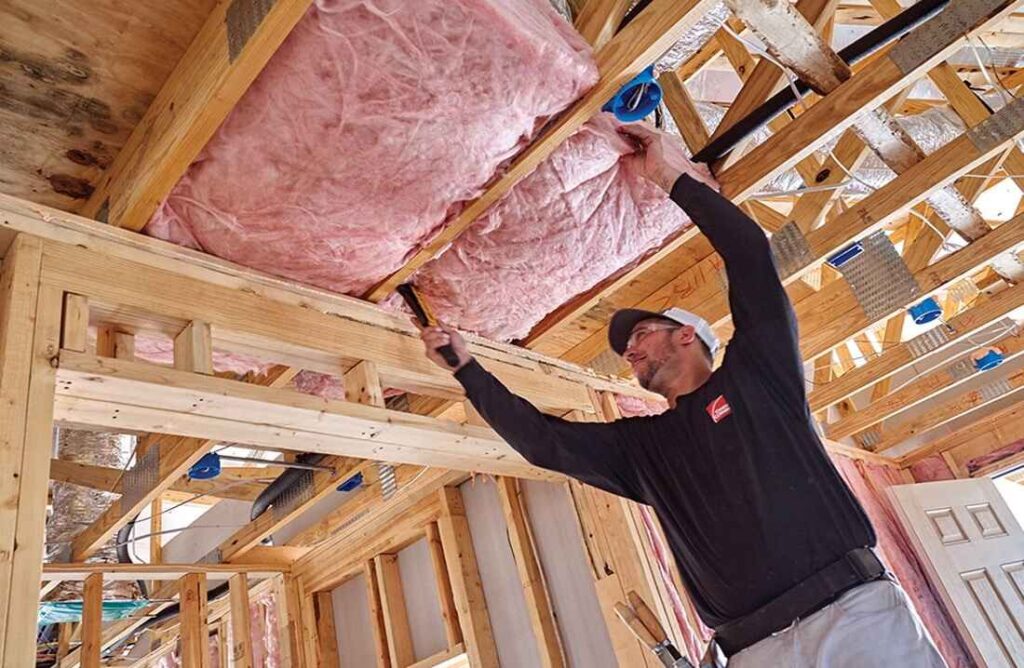
The Case for Wall Insulation in Uninsulated Basements
On the other hand, if the basement ceiling isn’t insulated, it’s generally advisable to insulate the basement walls. This is particularly crucial if you want to finish the basement and use it as an extended living space. Wall insulation is essential not just for creating a warm and inviting area but also for preventing moisture-related issues that can arise in unfinished spaces. Without proper insulation, the lower parts of your walls can become channels for moisture to cycle and evaporate, potentially leading to structural damage and mold growth over time.
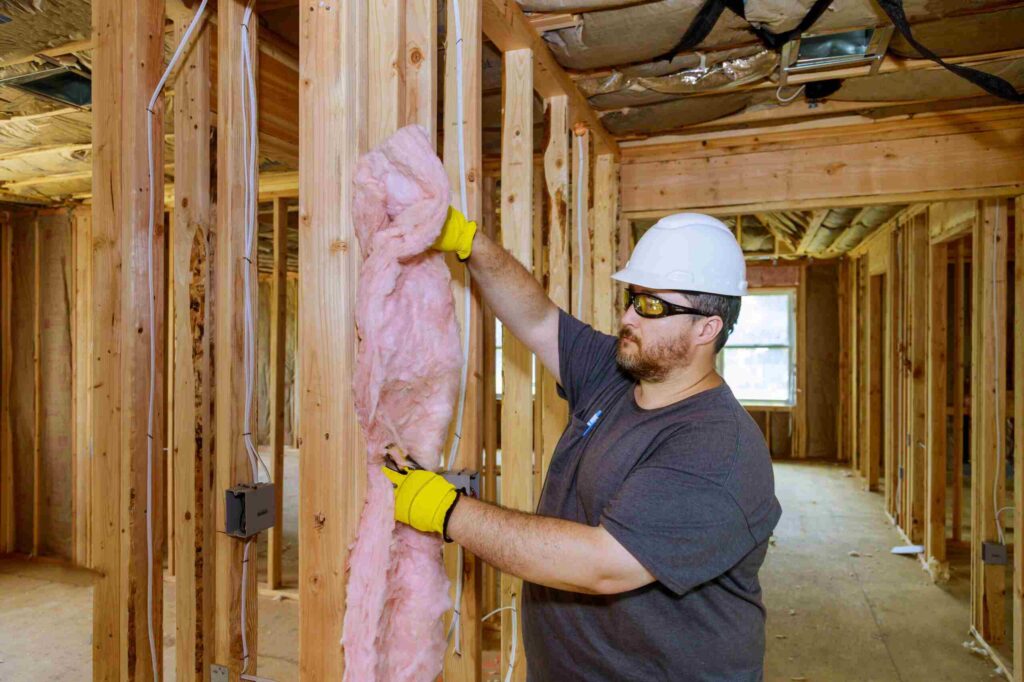
Comprehensive Insulation Solutions
For those finishing a basement or converting it into a living space, combining wall and ceiling insulation provides the best protection and efficiency. Insulating both can prevent air from leaching through unfinished parts of the basement, offering an airtight seal that enhances overall energy efficiency and minimizes heat loss. This dual approach also supports a more uniform temperature throughout the home, reducing the need for excessive heating or cooling. Utilizing products like roxul or spray foam in the joist cavities can be particularly effective for basements that extend above ground level in certain areas, providing additional thermal barrier protection where it’s most needed.
Choosing the Right Insulation for Your Basement
When planning to insulate concrete basement walls, understanding the different types of insulation available on the market is crucial. Common options include fiberglass, cellulose, spray foam, and foam boards. Each material has its benefits, but for basements that are partially or fully underground, where the probability of water and humidity seeping in is higher, spray foam and foam boards are often recommended. These materials are favored by industry professionals and contractors due to their ability to form a non-degrading, airtight seal that prevents unconditioned outdoor air, moisture, and even pests from entering the home.
Spray foam, in particular, offers a robust solution as it adheres well to concrete, filling cracks and gaps where air might seep through. This form of insulation not only blocks moisture but also enhances the thermal efficiency of the basement, making it easier to maintain a comfortable living space. Considering your specific basement conditions and consulting with a qualified contractor can help determine the best insulation type for your home.
Selecting the Best Insulation Material
For homeowners looking to finish their basement, choosing the right insulation method for concrete walls can greatly influence the overall comfort and energy efficiency of the space. One highly recommended method is using closed-cell spray foam because of its ability to create a seamless application. This type of insulation spray-applied directly onto the concrete walls forms an airtight seal, effectively preventing air from exchanging between the concrete and the interior of the basement. Unlike other materials, spray foam ensures there are no gaps or leaks, which could lead to energy losses or moisture problems.
Alternatives and Practical Application Tips
Another popular but less expensive option is faced fiberglass blankets. These can be easier for DIY projects but are generally less effective than spray foam at preventing condensation and may not always provide a complete airtight seal. When installing fiberglass blankets, it’s crucial to ensure they are tightly applied between the wood-frame and the concrete wall, with no spaces that might allow air to flow or moisture to collect.
For those opting to insulate with fiberglass batt insulation within a wood-frame, it’s essential to maintain an inch gap between the existing wall and the insulation to avoid any potential condensation risks. Homeowners should also consider adding a vapor barrier to further protect against moisture. However, for maximum energy retention and moisture protection, closed-cell spray foam remains the superior choice, especially in environments where temperature and humidity can vary significantly.
Also Read: Should Basement Insulation Be Faced or Unfaced?
Final Thoughts on Insulating Basement Walls
Insulating the concrete walls of your basement is more than just an upgrade; it’s a necessity for maintaining a comfortable, energy-efficient home. Not only does it make the basement more livable, but it also brings the entire house up-to-code, enhancing the overall comfort and reducing energy costs. For homeowners considering a basement project, applying proper insulation should be at the top of the checklist. It’s not just about the immediate comfort—insulating your basement walls can significantly reduce maintenance costs associated with HVAC systems, making your investment in insulation truly invaluable.
By keeping your basement warm in the winter and cool in the summer, proper insulation extends the usable living space in your home while reducing energy costs. Whether you’re finishing your basement for extra living areas or simply improving storage, insulation plays a key role in making the space more comfortable and efficient.
Need help finding a professional to insulate your basement walls? Contact us today, and we’ll connect you with trusted contractors who can ensure your project is done right for long-term comfort and savings. Make your basement a valuable part of your home with expert insulation solutions!
FAQ
Is It Okay to Not Insulate Basement Walls?
No, leaving walls uninsulated—whether above-grade or below-grade—is often a builder error and may even be illegal in some jurisdictions. It’s always advisable to install insulation on the interior or exterior of your basement walls, as omitting insulation is not a recommended option for maintaining energy efficiency and structural integrity.
Are Basements Supposed to Be Insulated?
Yes, basements should be insulated along their perimeters to maintain energy efficiency. Insulating the interior, especially rim joist areas, helps prevent cold spots during winter and excessive heat during summer, keeping the space comfortable.
Do Foundation Walls Need to Be Insulated?
Yes, foundation walls made of rubble or brick should be insulated to prevent water leakage, dampness, and other moisture problems. Insulating from the outside, along with repairing the foundation, parging, waterproofing, and installing a drainage system, ensures long-term protection and durability.
Do You Need to Insulate Basement Walls Below Grade?
Yes, below-grade walls should have continuous insulation (CI) with the correct R-value to ensure proper energy efficiency. Builders typically install materials like sprayed foam, foam board, or fiberglass on the exterior, which helps to insulate the basement and the entire house effectively.
